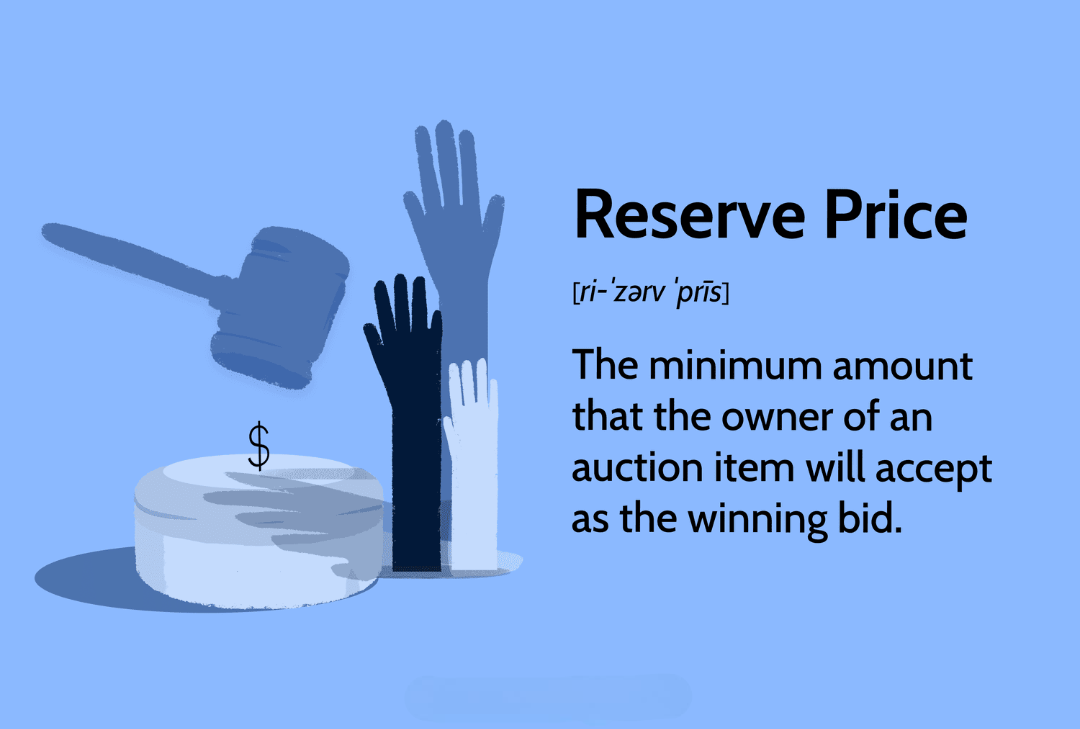Reserve Price in Commercial Land Auctions
Introduction
In commercial land auctions, pricing plays a decisive role in influencing both participation and outcomes. One of the most important financial indicators in such auctions is the reserve price—a pre-set minimum threshold determined by the seller or auctioneer, below which the property will not be sold. While the term may sound straightforward, its implications in commercial land transactions are deep and multi-layered. Understanding the reserve price is essential for buyers to strategize their bids, assess market value, and manage financial expectations. This article offers an in-depth examination of the concept of the reserve price, including its definition, purpose, calculation methods, role in bidding dynamics, and its impact on buyer strategies in commercial land auctions.
1. Reserve Price
The reserve price in a commercial land auction is the minimum price that the seller (typically a bank, financial institution, or government authority) is willing to accept for the property. It acts as a protective mechanism to prevent the land from being sold for less than its baseline market value or outstanding dues. If bidding does not reach or exceed the reserve price, the property remains unsold, even if there are active bidders. Unlike the starting bid, which is the initial price at which the auction opens, the reserve price is usually kept confidential or mentioned only in the auction terms, depending on the seller’s discretion.
2. Purpose and Importance of Setting a Reserve Price
The primary function of a reserve price is to safeguard the seller’s interests. In most commercial land auctions—especially foreclosure and distressed sales—the reserve price is set to ensure the recovery of loan amounts, interest, penalties, and administrative costs. For government land auctions, the reserve price reflects minimum acceptable rates in line with market value or government valuation norms. It also serves to avoid undervaluation in volatile or low-demand markets. For buyers, knowing the reserve price offers a reference point to assess the auction’s competitiveness, while for sellers, it helps maintain price discipline and value integrity.
3. Reserve Price is Determined
The reserve price is typically calculated using a mix of market analysis, professional valuation, debt recovery goals, and legal or regulatory guidelines. Common methods used include construction, deductions may be made for age, legal issues, or poor access.:
Fair Market Value (FMV): Based on recent sales of comparable properties in the same area.Government Guideline Value: Especially in public auctions, where pricing is tied to official rates per square foot or per acre.Loan Outstanding Amount: In bank auctions, the reserve price often equals the total due from the defaulter, including interest and penalties.Valuation by Approved Valuers: Independent professionals conduct land valuation reports to support pricing decisions.Depreciation & Location Adjustments: For developed land or land with partial
This pricing is then reviewed and approved by internal committees before being published.
4. Role of Reserve Price in Bidding Strategy
For bidders, the reserve price is both a target and a limit. It determines the minimum financial commitment required to stay in the game. While bidding below the reserve price is generally allowed, it has no legal binding on the seller—such bids will not be accepted unless the reserve is met or adjusted later. Strategically, bidders use the reserve price to calculate their maximum bid ceiling, factoring in additional costs like registration, taxes, and development expenses. In cases where the reserve price is seen as inflated, bidders may abstain, leading to low participation. Conversely, when the reserve price is modest, it may spark intense competition.
5. If the Reserve Price Is Not Met
If the bidding fails to meet the reserve price, the auction is typically declared unsuccessful. The property then becomes eligible for re-auction, often at a revised reserve price. In such cases, auctioneers may reduce the reserve in subsequent rounds (e.g., by 5% or 10%) to attract more bidders. Alternatively, the property may be offered through negotiated sale to the highest bidder, if allowed by law. For buyers, this presents a potential opportunity to negotiate directly with the seller or bank, possibly on more flexible terms. However, the seller is under no obligation to accept any offer below the reserve price unless a waiver is approved.
6. Impact on Market Perception and Auction Success
The reserve price also influences market perception and overall auction success. If the price is set too high, it may discourage participation, leading to failed auctions and longer holding periods for the seller. If it’s too low, it may trigger legal issues from defaulting borrowers or accusations of undervaluation, especially in judicial or public auctions. Ideally, a well-calibrated reserve price creates a balance between protecting seller interests and encouraging competitive bidding, thereby ensuring higher realization and faster transaction closure. For developers and investors, understanding reserve pricing trends in specific zones helps forecast asset availability and pricing cycles.
Conclusion
The reserve price in commercial land auctions is more than just a starting number—it is a crucial financial control point that dictates the pace, outcome, and strategic direction of the auction process. It reflects a calculated effort by sellers to protect asset value while providing buyers with a transparent baseline to assess affordability and investment potential. A successful auction hinges on the alignment of the reserve price with market realities, valuation accuracy, and bidder expectations. For investors and developers, mastering the concept of reserve pricing is essential to navigate auctions with clarity, confidence, and competitive advantage.
Hashtags
#ReservePrice #CommercialLandAuctions #RealEstateInvesting #AuctionStrategy #PropertyInvestment #LandAuction #RealEstateTips #InvestmentStrategy #CommercialRealEstate #AuctionProcess #RealEstateMarket #PropertyValuation #BiddingWar #InvestmentProperty #RealEstateAuction #LandValue #AuctionTips #RealEstateAdvice #CommercialProperty #ReservePriceDefinition #RealEstateKnowledge #AuctionBidding #PropertySales #MarketTrends




